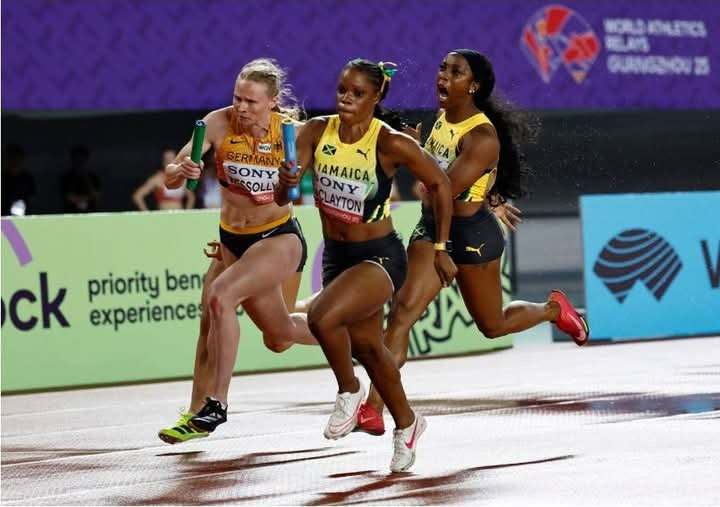Both the Jamaican men’s and women`s 4x100m relay teams experienced an almost similar challenge at the 2025 World Athletics Relays in Guangzhou. The men’s team suffered a major blow when Julian Forte injured himself during the baton exchange with Yohan Blake, failing to finish their heat. Earlier baton mishaps further complicated their chances of direct qualification.
Meanwhile, the women’s team struggled with poor baton exchanges, including a dropped baton between Shericka Jackson and Elaine Thompson-Herah, which caused their elimination from the heats. These setbacks put both teams’ automatic qualification for the World Championships at risk. Forcing them to rely on time qualifications and upcoming meets to secure their spots. It is an incident that seems to threaten Jamaica`s sprint legacy that has spanned for decades.
On the Peter Lloyd World YouTube channel, fans and analysts are asking tough questions: Why are the world’s fastest women-Shelly-Ann Fraser-Pryce, Shericka Jackson, Tia Clayton, and Kishane Thompson-not delivering the gold in the 4x100m and 4x400m relays? The answer, according to the video, might be as simple as “no money, no love.”
Peter Lloyd`s Take on Jamaican Team
Peter Lloyd, known for his honest and passionate takes on Jamaican athletics, dives into the country’s recent struggles at the World Relays and other major events. Despite boasting an all-star roster, Jamaica’s relay teams have faltered. With baton exchanges and team chemistry falling short of expectations. Fans are frustrated, but Lloyd argues the real issue is money.
“Top athletes prioritise their careers and sponsorships, which often pay far more than relay medals.”
On the other hand, legendary coach Stephen Francis shows how a lack of funding and poor planning hurt Jamaica’s chances.
” Relays require practice and commitment,but without financial incentives or early team selection, even the best sprinters may skip relay camps to protect their earning potential.”
Lloyd suggests securing sponsorships early, building a financial pool, and paying athletes to commit to relay training. Until then, Jamaica’s relay dominance may remain a thing of the past. This highlights that no matter which team will be lining up for future events, money is key.


